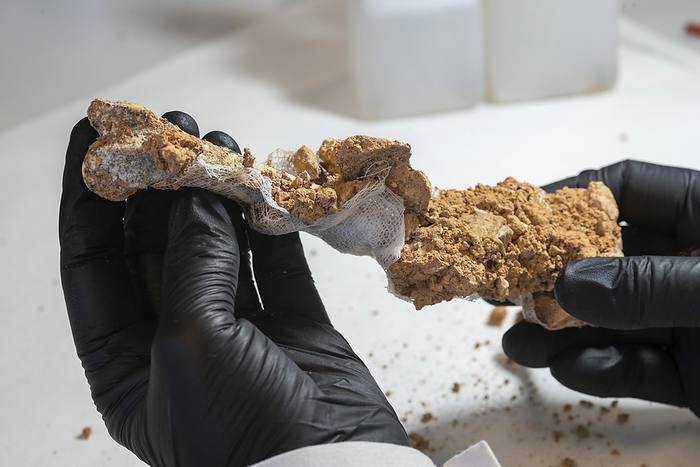
RM
Palaeontologist holding prehistoric Iberian lynx thigh bone
Palaeontologist restoring the femur (thigh bone) of a prehistoric Iberian lynx (Lynx pardinus) estimated to be 1 to 1.2 million years old (early Pleistocene). This species evolved as long as 2 million years ago, but conservation efforts were required to prevent its extinction after its population dropped to just 94 in 2002. The femur was found at the Quibas palaeontological site, Abanilla, Spain, which was discovered in 1994. This site contains a wide variety of well preserved fossils from the early Pleistocene., by MARCO ANSALONI / SCIENCE PHOTO LIBRARY

More
Top Categories
